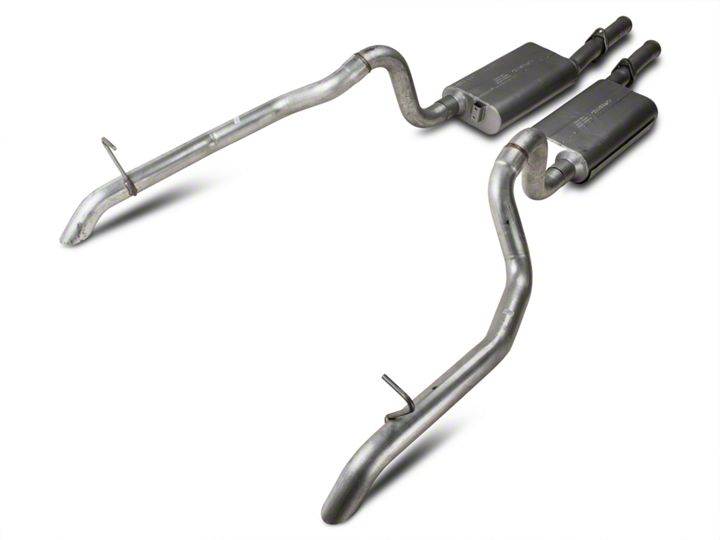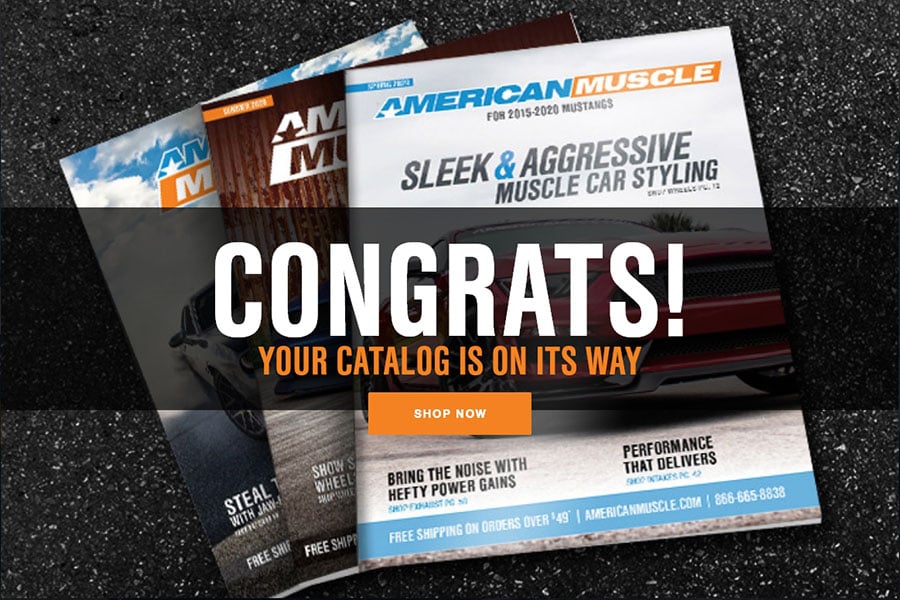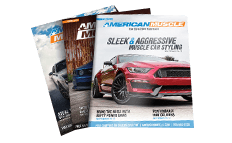
How to Install a Flowmaster Force II Catback Exhaust on your 1987-1993 Mustang GT

Shop Parts in this Guide
Installation
GENERAL INSTALLATION | TECHNICAL NOTES
DO I NEED TO INSTALL AN H-PIPE IN MY DUAL EXHAUST SYSTEM?
Flowmaster® strongly recommends using a crossover tube, otherwise known as an H-pipe or balance pipe on all true dual exhaust systems. The crossover pipe equalizes the exhaust pulses and allows the sounds waves to communicate between both banks of the engine. Not only does this usually improve torque in the low to mid rpm range, it also creates a deeper mellower tone both inside and outside of the vehicle and helps eliminate "back-rap" on deceleration.
IS AN X-PIPE BEITER THAN AN H-PIPE?
Over the years, Flowmaster has performed extensive testing of all types of crossovers and X-pipes, and has revealed no substantial performance benefits over H-pipes in street applications. We have experienced that some specialized race applications such as small cubic inch engines and I or restricted (small bore) carburetors, will respond well to the addition of an X-pipe over an H-pipe. X-pipes will however, produce a unique and smoother exhaust tone. Flowmaster offers a line of patented Scavenger® X-pipes if desired by the customer.
DO I NEED TO RUN TAILPIPES AFTER THE MUFFLERS?
Yes, Flowmaster highly recommends running a minimum of 12" tailpipe after the muffler. This will not only greatly help in sound control; it will also provide an increase in exhaust efficiency (more power). Running tailpipes out from under the car in street applications will also direct potentially harmful exhaust fumes away from the vehicle, as well as minimize the sound transmitted into the cab area of the vehicle.
HOW DO FLOWMASTER MUFFLERS WORK WITH COMPUTER CONTROLLED VEHICLES?
Late model computer controlled vehicles are constantly in a learning process that will adapt and tune itself to the exhaust efficiency increases generated by Flowmaster mufflers. Removing the negative side of the battery terminal for 1-2 minutes will reset the computer immediately and speed up this learning process.
THE IMPORTANCE OF EXHAUST HANGERS
When installing an exhaust system, it is very important that it be supported to the frame with flexible rubber mounting hangers. Using mounts that are stiff or mounted to the floorpan can transmit a great deal of sound directly to the body, creating a droning condition in the interior of the vehicle. Avoid this by using the common, flat "L" brackets with rubber insulator donuts.
HEAT SHIELDING
In the process of lowering underhood temperature, the exhaust system may in some cases be subject to increased radiant heat. It is advised that all RV and or heavy duty tow vehicle installations be reviewed for proper heat shielding between the exhaust plumbing and surrounding vehicle components. Aftermarket heat shields are available at most muffler shops or through Flowmaster. We do not recommend wrapping the muffler body with "header wrap" as the trapped heat will degrade the muffler at an accelerated rate.
THE -DANGERS OF CARBON MONOXIDE
When an exhaust pipe exits the rear of a car, truck, van, SUV or station wagon, there is the potential for highly poisonous carbon monoxide gas to be drawn into the rear compartment. Even a slight exhaust opening or faulty gasket can allow significant exhaust fumes to enter. Rear exit exhaust systems should only be installed on pickups without camper shells or where camper shells are never used to carry people or animals. If you tow a trailer or carry passengers inside a camper shell in the back of your truck, you should select a single or dual side exit system. In addition, with rear exit systems you may find exhaust soot on the trailer you're towing.

